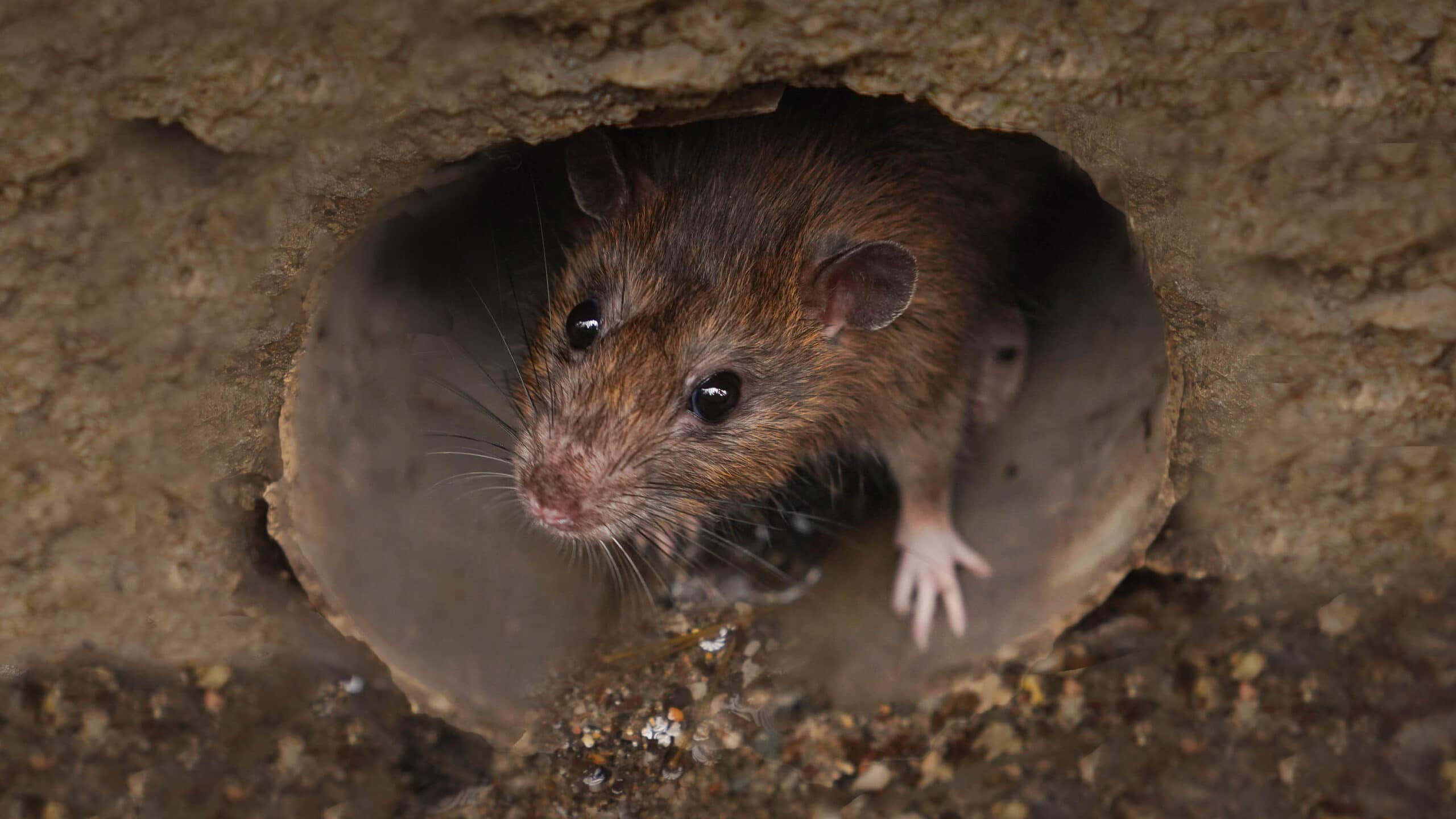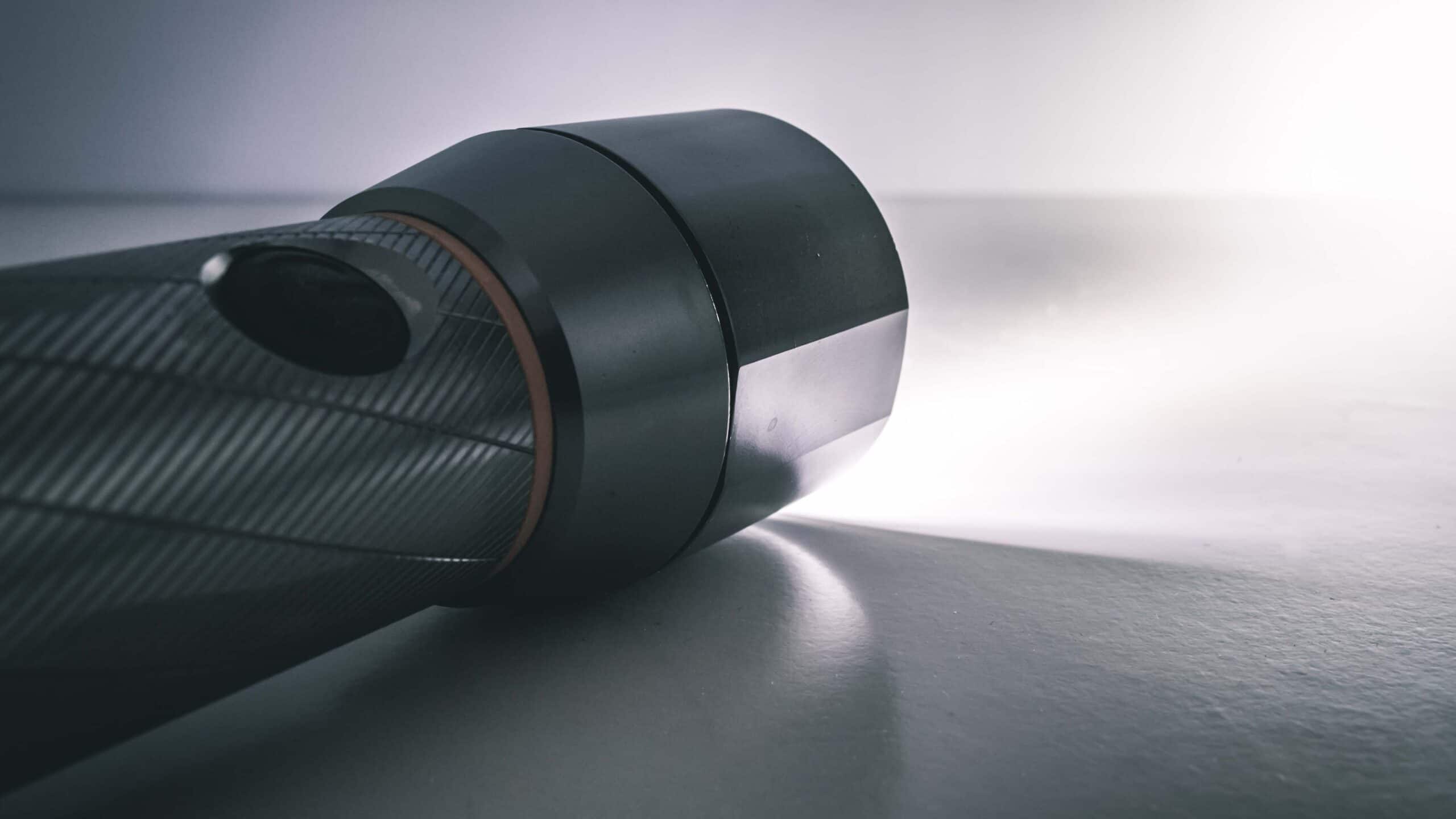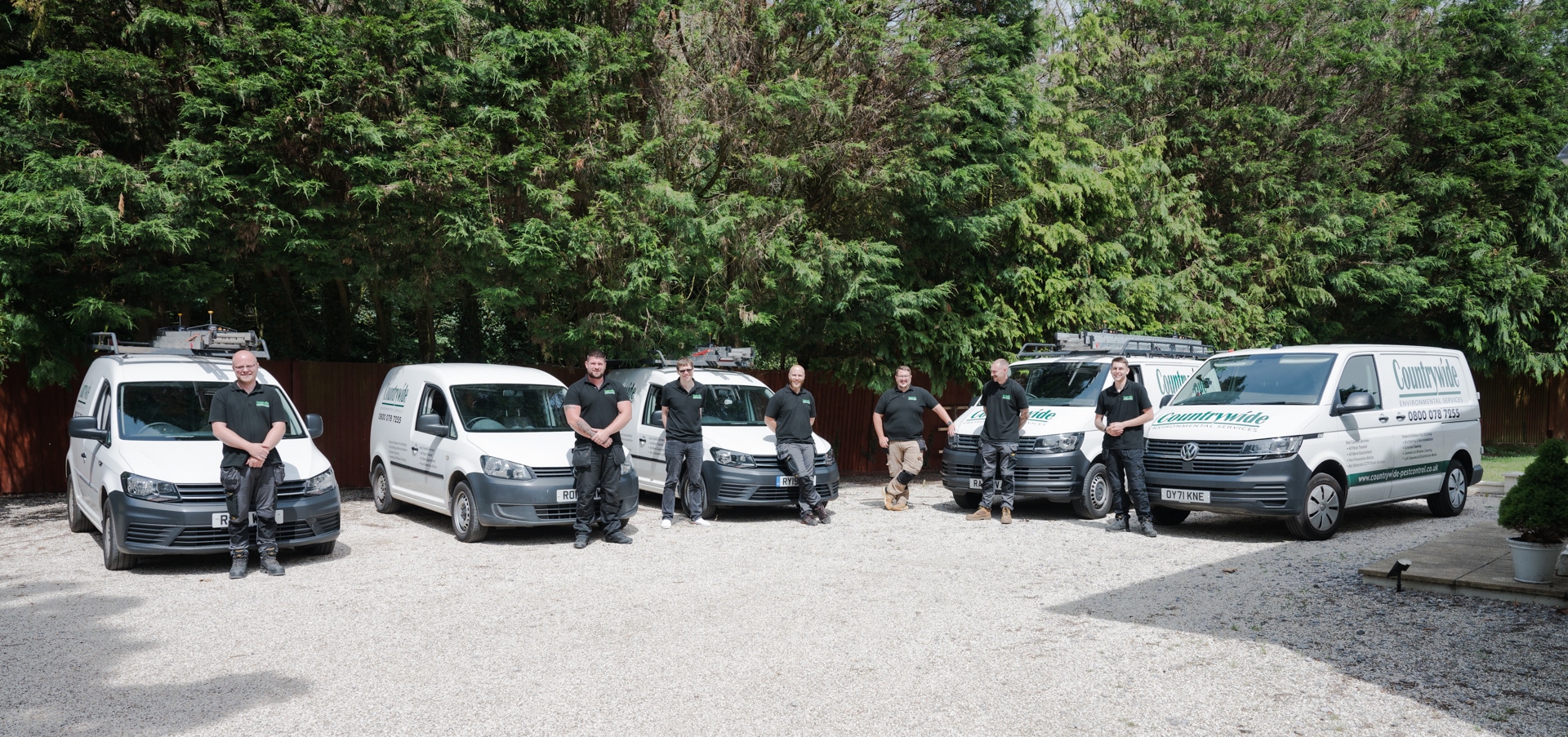Rats and other rodents, such as mice and squirrels, live in tandem with humans outside but will often venture indoors seeking shelter or food. When they do, rats can be incredibly destructive and spread diseases. As such, they’re incredibly dangerous for home and business owners throughout Newbury, Berkshire and the whole UK. Here’s how to identify common rodent entry points and stop them from gaining entry to your property.
Why Do Rats Enter Buildings?
Rats are very basic in their needs; they require just water, food, and shelter to survive. Unfortunately, homes and businesses tend to be their preferred choice due to the abundance of food waste and cosy nesting opportunities, which is why rodents enter properties. Rats are extremely adaptable and are built to survive; therefore, it can be difficult for untrained professionals to control a rat infestation. In addition to this drive for survival, rats and other rodents breed rapidly. Once they find a new home, you will quickly see a rat’s nest, which can often be found in lofts. Therefore, what starts as a small problem can quickly develop into an extensive and hazardous infestation.
In order to minimise your chances of a rodent infestation, there are some signs that you can look out for so you can take preventative measures. Common rodent entry points are small gaps or holes in the exterior of your building which indicate where a rodent is entering your property. The identification of these entry points enables you to proactively block and proof your home or business.
How To Find Rat Entry Points
Rats are small and agile; therefore, they require a gap of just 15mm to enter your property. Although this confirms that rats are creative, it also means that it is incredibly difficult for humans to spot these entry points due to how small they can be.
If you have noticed signs around your home, such as scratching sounds, brown smudges on surfaces, rat droppings or nesting materials, inspect the interior and exterior of your property to find rodent entry points. To prevent a rat infestation, we recommend regular inspections of your property for potential entry points to maintain effective rat-proofing.
In addition to inspecting the facade of your building, it is imperative to check your outdoor spaces. Rats will try to avoid humans at all costs, so if you have lots of waste, large compost piles, overgrown greenery, or log piles, rats will use these as safe passages towards the property. Another potential entry point for rats is your drains, as they can chew their way through pipes and gain entry to your home before making their way to a roof space or another quiet area where they can build nests and reproduce.
At Countrywide, we provide a thorough and extensive inspection for rat entry points to combat your pest infestation efficiently. For more information, call us today at 0800 078 7255 or book your rat control visit and implement successful pest control solutions. We can carry out rat nest removal and get rid of all debris associated with a rat infestation.
Common Rodent Entry Points
Generally speaking, rats tend to be consistent in their choice of entry points. Although there are some exceptions, they commonly enter buildings through small openings in the structure, negligent building work or natural faults due to the age and condition of the property.
Below are some of the most common entry points for rats and other rodents, such as mice and squirrels.
Air Vents
Air vents around your property are the perfect height for rodents and can provide a direct route into your home. In older properties, bricked air vents can offer more protection; however, due to their age, they can often be broken or cracked. This damage can provide holes big enough for a rat to enter.
In new builds and modern properties, these vents are plastic. Unfortunately, a rat can easily gnaw through plastic, so rodent-proofing measures need to be implemented to stop rodents from entering your home.
Cracks In Walls
Depending on the age of your property, foundation cracks can naturally occur on the exterior of your home. Rats will use these cracks to enter a property and live inside the walls. Rats are also equipped with strong teeth; therefore, they can chew through wood, plastic and even brick to make these cracks bigger. If there are gaps in roof tiles, then there might be rats in your roof space.
So, if you notice even small gaps in your walls, it’s important that you’re proactive. Make sure you seal gaps and monitor them to see if they appear larger. Even tiny openings can lead to rodent problems in the future, so it pays to be vigilant.
Overgrown Greenery
If you have plants, such as ivy, which stretch the height of your property, you provide rats with a direct route to your guttering and roof. Rats and other rodents can gnaw their way inside the property from your roof and damage your guttering.
If you suspect you have rats in the loft, inspect the outside of your home to identify potential access routes. Exterior greenery should be maintained and trimmed regularly to reduce this threat. Also, large leaf piles can attract rats and mice, so it’s worth making sure you keep your garden tidy.
Drains
As rats are nocturnal, they enjoy dark places with little to no human contact. Drains and sewers are extremely common places for rats to live, and drains also provide a direct route into your home.
Gaps around pipework or damaged pipes are one of the easiest ways for a rat to enter your property. Therefore, filling and sealing holes around pipes helps to restrict and limit the number of rat entry points. At Countrywide, we offer CCTV drain surveys for rats to ensure 100% effective rat control treatments and identify the rodent entry point, even if it’s underground.

Doors and Frames
Badly sealed exterior doors or windows could provide a big enough gap for a rat to squeeze through. Therefore, ensure your windows and doors fit perfectly and are appropriately weather-protected to ensure pests cannot take advantage of small holes or gaps in the silicone.
Additionally, when you open a door, rats can exploit this and run inside undetected. Installing a screen can help with unwanted rodents as well as other insects which will enter your home. In commercial applications, automatic doors can stay open for quite some time, resulting in an easy passage for rats, so screens and appropriate outdoor rodent proofing are essential.
Poor Construction Work
Tradespeople and construction workers do not fully understand a rat’s capabilities. As a result, during the completion of a job, they may leave holes unfilled or gaps around the pipework or your chimney grate and other openings, which can allow rodents to gain access to your property.
If there are gaps or construction issues, rats will be able to enter as they please, leaving no trace of damage behind. Ensure you hire a reputable company to complete any building work, as this can limit your exposure to rodents. Also, make sure you inspect their work, as it is easier to stop rats from entering in the first place than to get rid of rats once a rodent infestation has taken hold.
Garages
Garage doors typically feature a small rubber weatherproofing seal to protect your garage. Unfortunately, rodents can chew through this seal very easily; therefore, this is a very simple way for a rat to enter your property.
If you’ve noticed small chunks of rubber on the floor in your garage or large gaps in the weatherproof seal, this is a definite sign that a rodent uses this location as an entry point.
Once we’ve found how the rodents have entered your property, we can seal entry points to remove your rat problem.
Book a free survey
Please provide your details below and we will complete your survey at a time convenient to you
Rat Prevention Tips
Rats are opportunistic animals with the ability to live anywhere and eat almost anything. For this reason, the chances of encountering a rat problem or infestation are very high. Furthermore, rats cause severe structural damage and carry many diseases that are dangerous to humans and domestic pets.
To minimise your chances and protect your home or business, rodent-proofing measures need to be implemented to prevent rodent entry and, therefore, future rodent infestations. Rodent proofing is a successful way of preventing rats, mice and squirrels from entering your property. At Countrywide, we specialise in effective and efficient rat control services to keep these large rodent pests away.
Look Out For Common Signs Of Rodent Activity
Rodents of any species will leave behind droppings, nesting material, urine, damage and smells. Looking out for these signs ensures you can get rid of the vermin before these animals breed. Rats can breed up to 2,000 babies yearly, so proactive pest control is essential.
Now that you know what to look for, regular inspections around your property will highlight entry points that must be addressed and rectified.
Improve Your Waste Management And Food Storage
Food waste, clutter and rubbish attract rats and can encourage other pests to live on your land. Therefore, regular cleaning and maintenance are recommended to ensure you are limiting food sources and removing potential nesting habitats. Clear away food spills and crumbs fast to reduce opportunities for rodents.
Where you store food is also important, so make sure you use airtight containers to keep human and pet food safe from hungry rodents. Being vigilant will help you to implement disease control and reduce the chances of food contamination due to rodents.
Hire Professionals For Effective Rat Proofing
The most successful and efficient way of managing any pest infestation is by calling a professional pest control company. At Countrywide Pest Control, our expert operatives are trained and skilled in controlling and removing all pests from commercial and domestic premises. Furthermore, our services extend to proofing your property, guaranteeing that your rodent problem is 100% eradicated and will not return in the future.
If you are suffering from a rat problem, mouse infestation or squirrel issue and require pest control in Berkshire, Hampshire and Oxfordshire, call us today at 0800 078 7255 for your free quote.



